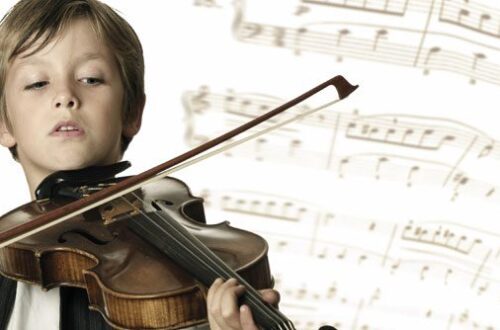Songs of the October Revolution
Contents
No matter what belated curses were sent to Lenin and the Bolsheviks, no matter how rampant the demonic, satanic forces were declared by some pseudo-historians to be the October Revolution, the book by the American journalist John Reed is named as accurately as possible – “Ten Days That Shook the World.”
It is the world, and not just Russia. And others sang songs – appealing, marching, and not decadently tearful or romantically languid.
“He raised his club against his enemies!”
One of these things, as if anticipating, blessing and historically anticipating the social revolution that took place, of course, was “Dubinushka”. Fyodor Chaliapin himself did not disdain to perform songs of the October Revolution, for which, in fact, he suffered – the greatest order of Emperor Nicholas II was to “remove the tramp from the imperial theaters.” The poet V. Mayakovsky will later write: “Both the song and the verse are a bomb and a banner.” So, “Dubinushka” became such a bomb song.
Refined aesthetes winced and hastily covered their ears – just as venerable academicians once turned away with disgust from I. Repin’s painting “Barge Haulers on the Volga.” By the way, the song also talks about them; the still silent, formidable Russian protest began with them, which then resulted in two revolutions with a short interval. Here is this great song performed by Chaliapin:
Similar, but not the same face!
The stylistics and lexical structure of the songs of the October Revolution have a number of characteristic features that make them recognizable:
- at the thematic level – the desire for immediate active action, which is expressed by imperative verbs: etc.;
- frequent use of the general instead of a narrowly personal “I” already in the first lines of popular songs: “We will bravely go into battle,” “Boldly, comrades, keep up,” “we all came from the people,” “Our locomotive, fly forward,” etc. .d.;
- a set of ideological cliches characteristic of this transitional time: etc.;
- a sharp ideological demarcation into: “white army, black baron” – “The Red Army is the strongest of all”;
- energetic, marching, marching rhythm with a meaningful, easy-to-remember chorus;
- finally, maximalism, expressed in the readiness to die as one in the fight for a just cause.
And they wrote and rewrote…
Song “White Army, Black Baron”, written hot on the heels of the October Revolution by the poet P. Grigoriev and composer S. Pokrass, at first contained a mention of Trotsky, which then disappeared for censorship reasons, and in 1941 it was modified with the name of Stalin. She was popular in Spain and Hungary, and was hated by white emigrants:
It couldn’t have happened without the Germans…
Interesting story songs “Young guard”, whose poems are attributed to the Komsomol poet A. Bezymensky:
In reality, Bezymensky was only a translator and an untalented interpreter of the original German text by the poet Julius Mosen in a later version by another German, A. Eildermann. This poem is dedicated to the memory of the leader of the uprising against Napoleonic tyranny, Andreas Hofer, which took place back in 1809. Original song called “At Mantua in gangs”. Here is the version from the GDR times:
From couplets from the First World War “Have you heard, grandfathers” another song of the October revolution has sprouted – “We will boldly go into battle”. The White Volunteer Army also sang it, but, of course, with different words. So there is no need to talk about one author.
Another story with a German prologue. The revolutionary Leonid Radin, who was serving a sentence in the Tagansk prison, in 1898 sketched out several quatrains of a song that soon gained fame from the very first line – “Bravely, comrades, keep up”. The musical basis or “fish” was the song of German students, members of the Silesian community. This song was sung by the Kornilovites and even the Nazis, “shovelling” the text beyond recognition.
Sing anywhere!
The October Revolution brought forward a whole galaxy of talented commanders-nuggets. Some served under the tsarist regime, and then their knowledge and experience was claimed by the Bolsheviks. The bitter paradox of time is that by the end of the 30s. only two remained alive – Voroshilov and Budyonny. In the 20s, many enthusiastically sang “March of Budyonny” composer Dmitry Pokrass and poet A. d’Aktil. It’s funny that at one time they even tried to ban the song as a folklore wedding song. It’s good that you came to your senses in time.



